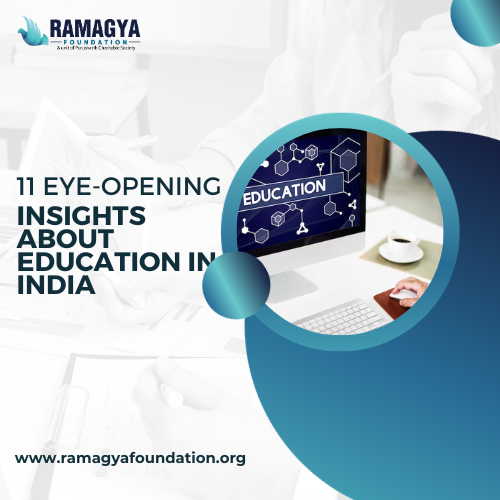Education is the cornerstone of a thriving society, and it plays a pivotal role in shaping the future of any nation. In India, the education system is a dynamic force that influences the lives of millions. This blog will unveil 11 fascinating facts about education in India that you need to know. From ancient traditions to modern innovations, let’s dive into the complexities and triumphs of the education system in India.
- A Rich Tapestry of History
India has a rich history of education dating back thousands of years. The Vedas, written between 1500 and 500 BCE, contained valuable knowledge passed down through generations. This ancient heritage has contributed significantly to the modern education system in India, making it unique and deeply rooted in tradition. - The World’s Largest Population of Students
India is home to a massive population, and it is no surprise that it boasts the world’s largest student population. With over 315 million students, the education system in India is a complex, ever-evolving network that continues to grow. - A Land of Diverse Languages
India has immense linguistic diversity, with more than 19,000 languages spoken nationwide. The Indian education system recognizes 22 officially recognized languages and fosters multilingualism, creating an inclusive and accommodating space for linguistic diversity. - Innovation in Ancient Teaching Methods
Gurukul[1], a system of education where students lived with their teachers to learn, is a well-known ancient tradition in India. While this system has evolved, it emphasizes the importance of a solid teacher-student bond and personal mentorship, which is highly valued in the modern education system. - The Importance of STEM Education
India strongly emphasizes STEM (Science, Technology, Engineering, and Mathematics) education. The country’s thriving IT and engineering sectors are a testament to the emphasis on these fields. India’s education system strives to prepare students for a competitive global market, evident in the widespread availability of STEM programs. - A Gender Gap to Overcome
While the Indian education system has made significant strides, a gender gap still exists in certain regions. India’s girls face obstacles in accessing quality education, but efforts are ongoing to bridge this gap and promote gender equality. - Government Initiatives for Education
The Government of India has launched several initiatives to improve the education system. Programs like Sarva Shiksha Abhiyan and Rashtriya Madhyamik Shiksha Abhiyan aim to enhance access to quality education, especially in rural areas, fostering a more inclusive system. - Rising Literacy Rates
India has seen significant improvements in literacy rates over the years, indicating that more individuals are gaining access to education. This progress demonstrates the dedication of the education system to promoting knowledge and learning among its citizens. - A Diverse Educational Landscape
In India, the education system encompasses a wide range of schools, from government-run institutions to private and international schools. This diverse landscape provides options to cater to different learning needs and preferences. - The Role of Competitive Exams
Competitive exams like the Joint Entrance Examination (JEE) and the National Eligibility cum Entrance Test (NEET) are crucial in determining access to higher education. These exams are known for their high stakes and significantly impact students’ futures. - The Role of Non-Governmental Organizations
Non-Governmental Organizations (NGOs) like the Ramagya Foundation play a vital role in complementing the education systems efforts in India. These organizations work towards providing educational opportunities to underprivileged children and fostering holistic development.
Conclusion
Education in India is a multifaceted and ever-evolving system that continues to shape the nation’s future. It is a testament to the country’s rich heritage and ongoing commitment to fostering knowledge and learning. From ancient traditions to modern innovations, the Indian education system is a dynamic force that shapes the lives of millions. As we journey forward, it’s essential to recognize the challenges and triumphs of this complex ecosystem, working together to provide quality education for all. The Ramagya Foundation, among other organizations, is pivotal in building a brighter future through education.
Read our Article: How NGOs Are Reviving Education System in India
